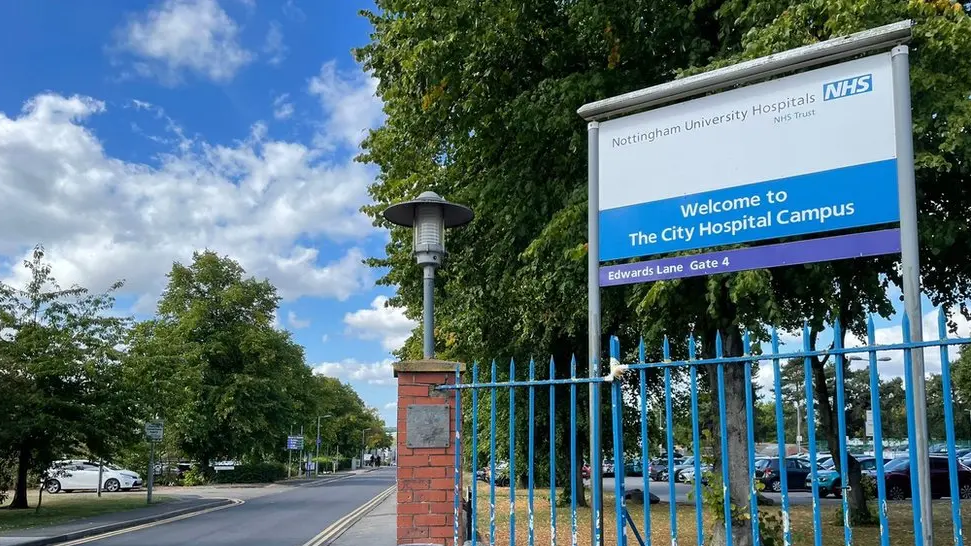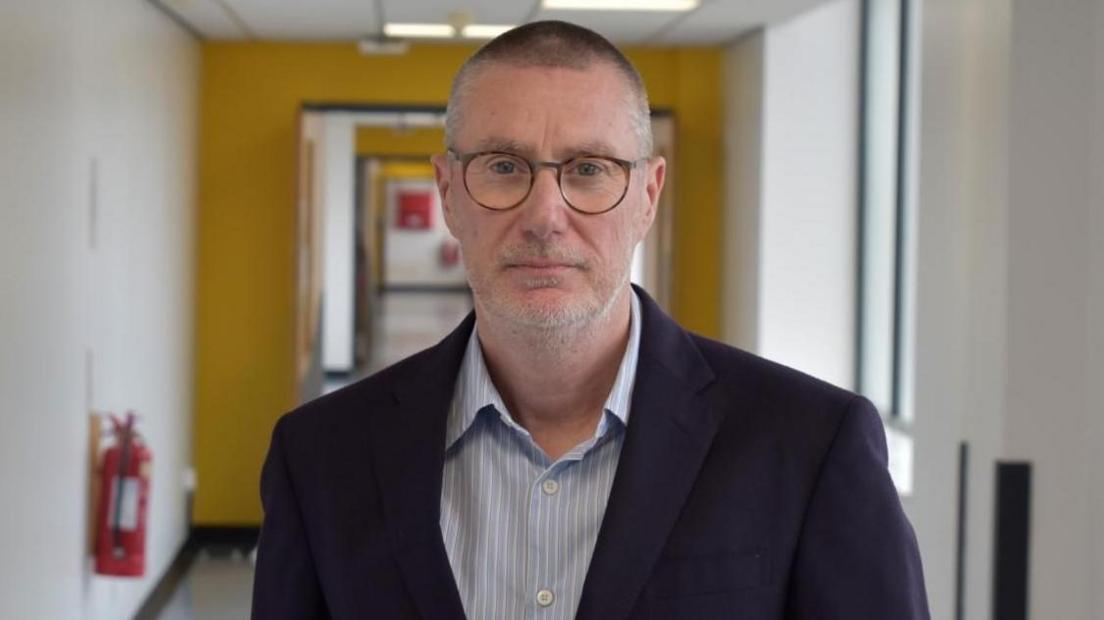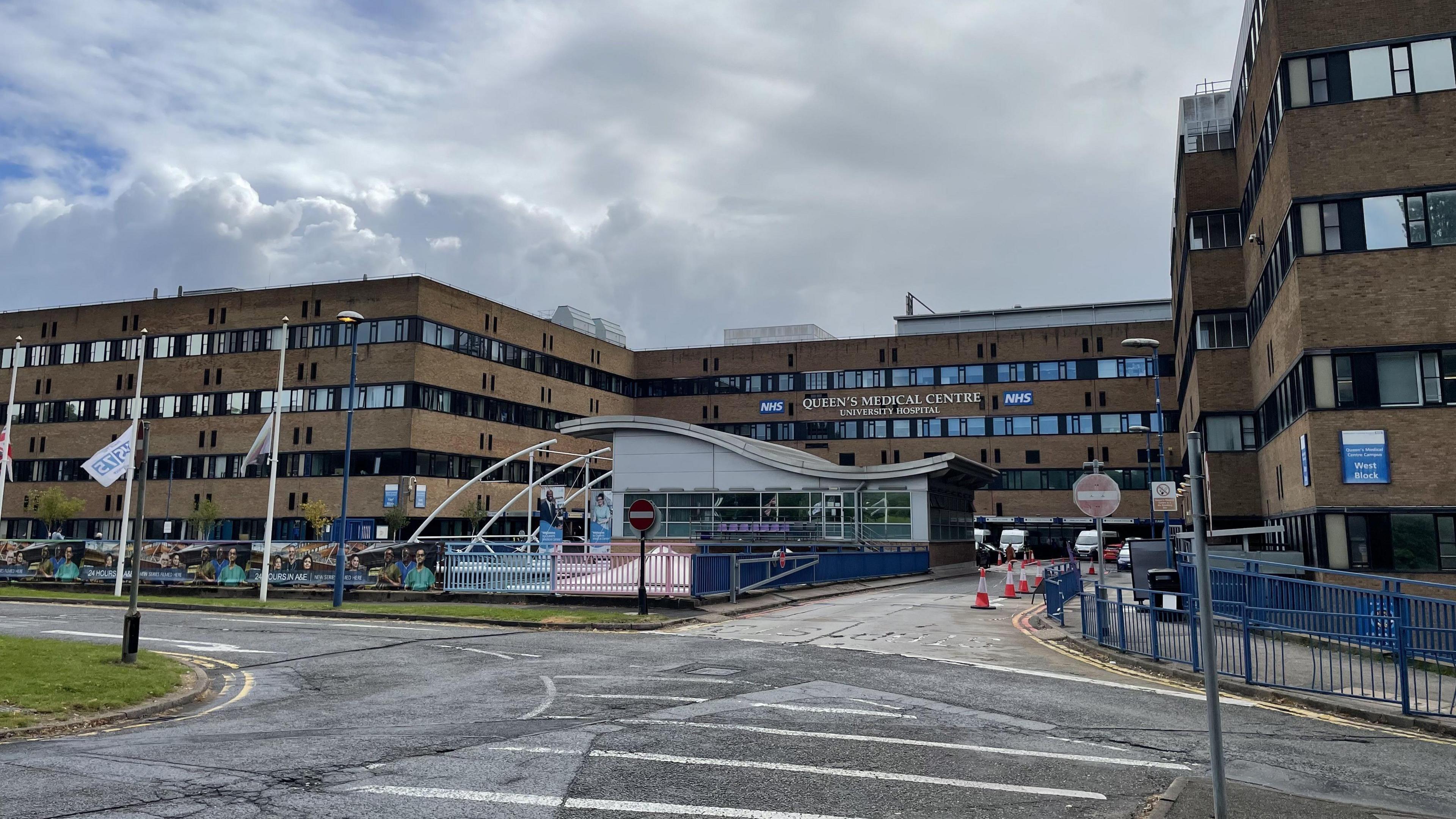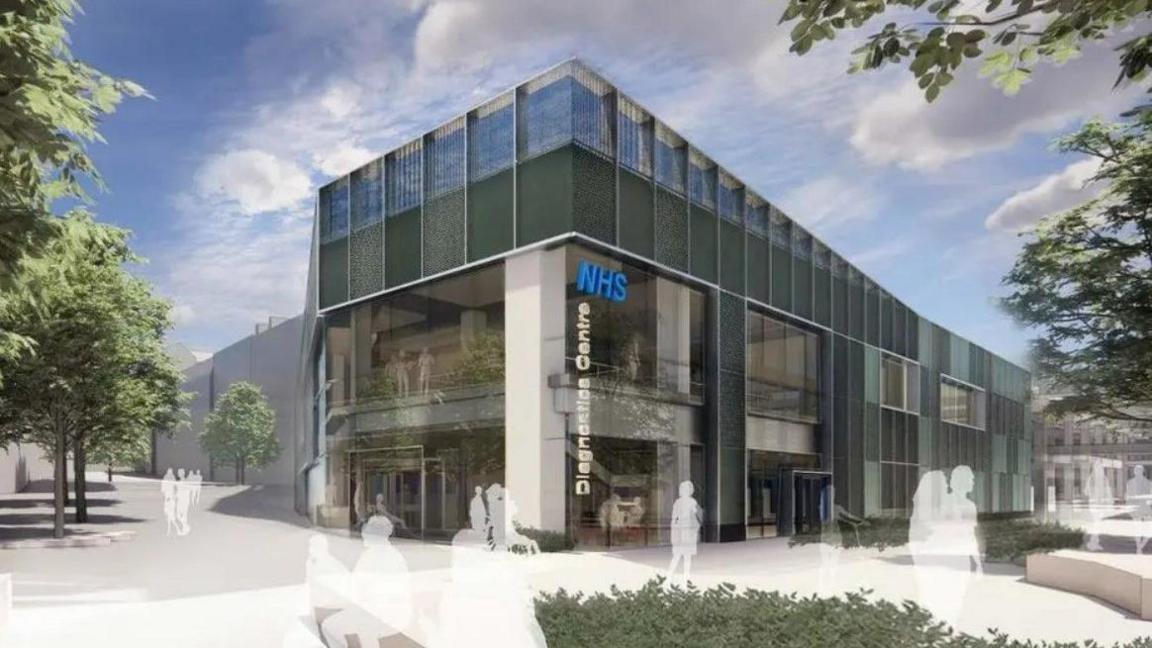NHS trust to cut 430 jobs in bid to save £97m

The trust wants to save £24m by limiting the use of bank and agency staff
- Published
Hundreds of job cuts will be made by an NHS trust in an effort to help save more than £97m in the next year.
At least 430 jobs are set to go at Nottingham University Hospitals (NUH) NHS Trust as part of a major transformation plan announced on Tuesday.
It comes as the trust, which runs the Queen's Medical Centre and City Hospital, has announced a new plan to "transform services and improve patient care".
NUH chief executive Anthony May said the trust "had a duty to the taxpayer to spend within [its] means".
The majority of job losses would be in corporate and support services as the trust seeks to reduce its salary bill and the reliance on agency and other temporary staff.

Chief executive Anthony May said the trust "know [the announcement] is not easy for colleagues to hear"
The plan to change services will feature the use of new technology and a focus on prevention and treating people in the community.
This includes a new digital app for patients to manage appointments and view test results, improved outpatient services to cut waiting times, and an expansion of theatres to increase day case operations by 5,000 per year.
Mr May said the trust wanted to "create hospitals designed for the 21st Century".
He said: "We know that we cannot make these improvements without making savings and have had clear instructions from government on the reductions needed in support services across the NHS.
"While we have already made significant savings, we know there is more to do in the next three years to meet our financial targets and to help us to meet the needs of our patients and staff.
"This will result in us having to make some difficult decisions in the coming years, in particular reducing our staff numbers by at least 430 this financial year."
The trust said about 100 roles that could go had already been identified through its Mutually Agreed Resignation Scheme.
Mr May said the trust wanted to avoid making compulsory redundancies but they could not be ruled out completely.
He added: "I know this will be challenging, but our plan will ensure our services are fit for the modern world and we will provide the best environment for our staff to provide care to our patients.
"We will do everything we can to avoid compulsory redundancies, by not replacing staff as they retire or leave for example, and we will do everything we can to protect clinical roles."

Union leaders have warned about losing "dedicated and experienced" workers
Scott Weightman, regional organiser for the union Unison, said cutting jobs at the trust would not improve services for patients and would damage staff morale, adding: "Losing dedicated and experienced staff is totally counterproductive."
The trust, which has an annual budget of £1.8bn, made £91.2m in savings last year but still overspent by £51.6m.
Its current workforce amounts to the equivalent of 18,300 full-time staff, and employment costs make up 70% of the trust's annual budget.

Analysis
By Rob Sissons, health correspondent, BBC East Midlands
The push to deliver efficiency savings is nothing new in the NHS but the modern day pressures makes the mission no easy task.
Spend on agency and bank staff is being examined for savings but there are limits to how much this can be targeted, as there is a need to maintain safe staffing levels and ensure that front-line clinical staff are not overburdened or suffer burnout.
Events can of course blow any savings plan off course and there are plenty of unknowns in the coming months.
How bad will winter be is one of the big questions bosses ask every year and the inevitable strain that puts on health services can force up spending.
Hospitals are planning for winter now in summer.
Another cost pressure will be if doctors and nurses resume strikes over pay. The British Medical Association is currently balloting junior doctors - now called resident doctors - over whether they wish to take industrial action, with the result expected in July.
The ambitious plan for new capital infrastructure in Nottingham, including a new A&E and cancer treatment facilities, has been put back to 2037, which leaves the trust having to deal with older facilities
It is grappling with the biggest NHS building, maintenance and repair backlog of any trust outside London.
That can lead to unexpected disruption. A recent inspection of an operating theatre roof recently revealed wiring problems that put it out of action, when there is pressure to use facilities as much as possible to bring down the waiting list backlog.
The savings targets have been set - but delivering them was never going to be straightforward in the complex world of healthcare.
Get in touch
Tell us which stories we should cover in Nottingham
Follow BBC Nottingham on Facebook, external, on X, external, or on Instagram, external. Send your story ideas to eastmidsnews@bbc.co.uk, external or via WhatsApp, external on 0808 100 2210.
Related topics
- Published2 June

- Published10 April

- Published19 March
